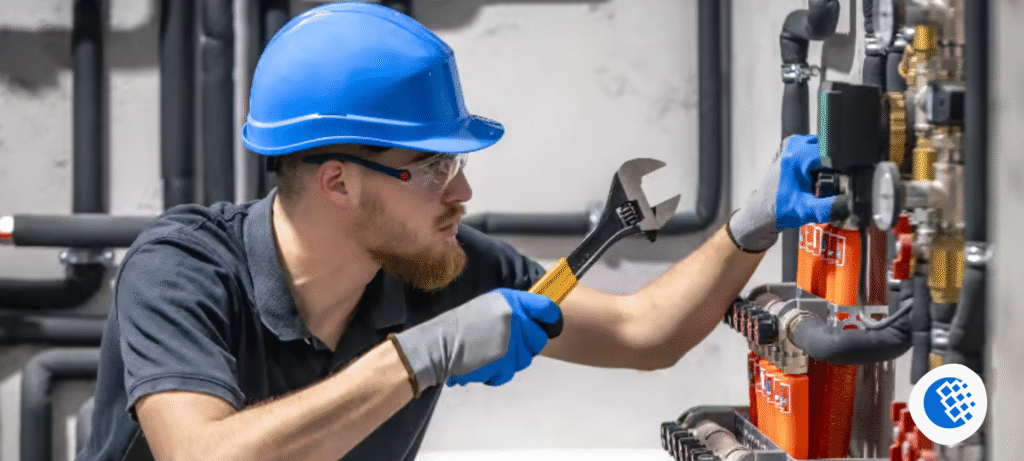A water heater is one of the most critical appliances in your home, quietly working to provide hot water for showers, dishes, and laundry. Many homeowners only realize there’s a problem when the tank fails completely, leaving them without hot water and facing an expensive emergency water heater repair in Los Angeles, CA. The reality is that water heaters often give subtle signs of trouble long before a full breakdown occurs. Paying attention to unusual signs in unexpected places can save you time, money, and frustration. Understanding where to look for these early warnings is key to avoiding sudden failures and ensuring your water heater continues functioning efficiently.
1. Strange Noises in the Pipes
If you hear banging, popping, or rumbling sounds coming from your pipes, it may indicate a sediment deposit inside your water heater tank. Over time, minerals and debris accumulate at the bottom of the tank, causing water to bubble and create loud noises during heating cycles. These sounds are often mistaken for plumbing issues, but the root cause is usually your water heater struggling to heat water effectively. Ignoring these noises can lead to leaks or even a tank rupture. Addressing these early signals with professional inspection can prevent costly replacements says Keyrenter Highlands Ranch.
2. Unusual Water Temperature Fluctuations
A water heater that is failing often produces inconsistent water temperatures, even when the thermostat setting remains unchanged. You may notice scalding water followed by sudden cold bursts during showers or when using hot water in different areas of the home. These fluctuations can signal a failing heating element, thermostat issues, or sediment buildup impairing heat transfer. Inconsistent water temperatures not only cause discomfort but also increase energy bills as the unit works harder to maintain heat. Detecting these fluctuations early allows for repair before total system failure.
3. Discolored or Rusty Water
Hot water that appears brown, orange, or has a metallic taste is an alarming sign of internal corrosion within your water heater tank. Rust inside the tank can break free and flow through your plumbing, leading to stained sinks, laundry, and dishes. Even if the discoloration is intermittent, it’s a warning that the tank’s lifespan may be nearing its end or that internal components are deteriorating. Corrosion can eventually cause leaks or tank bursts if left unaddressed. Scheduling a water heater inspection at the first sign of discoloration can prevent major water damage.
4. Moisture or Leaks Around the Tank Base
Water pooling around the base of your heater or unexplained damp spots on nearby walls or flooring often point to leaks from the tank itself. While minor condensation can occur, persistent moisture is rarely normal and may indicate a failing tank or loose connections. Leaks not only reduce the efficiency of your water heater but also pose a risk of mold growth and structural damage. Many homeowners overlook this subtle warning until water damage becomes visible. Catching leaks early can save significant repair costs and protect your home.
5. Reduced Water Pressure
A sudden drop in water pressure, especially from hot water taps, can be an overlooked sign of a struggling water heater. Sediment buildup inside the tank or corrosion in pipes connected to the unit can restrict water flow, causing weaker pressure throughout your home. Reduced pressure is often more noticeable when multiple hot water sources are used simultaneously. Ignoring this problem can worsen over time, leading to clogged lines and further mechanical strain on the heater. Timely maintenance or repair can restore proper flow and prevent a complete system breakdown.
Water heaters often display subtle signs of trouble long before a total failure occurs, and these signs can appear in unexpected places. By paying attention to unusual noises, temperature fluctuations, water discoloration, leaks, and reduced pressure, you can identify problems early and avoid costly emergencies. Scheduling routine water heater services in Los Angeles, CA, is essential to extending the life of your water heater and maintaining consistent hot water throughout your home. Being proactive not only safeguards your plumbing but also ensures safety and comfort for your household.
Don’t wait until a small issue becomes a major water heater emergency. Schedule a professional inspection today to identify hidden problems and ensure your hot water supply remains reliable. Contact a trusted expert from Mike Diamond Plumbing & HVAC at 1-800-446-6453 to protect your home and prevent costly repairs before they happen.
FAQs
1. How often should a water heater be inspected for potential issues?
A professional inspection is recommended at least once a year to catch signs of sediment buildup, corrosion, leaks, and other issues before they escalate.
2. Can unusual noises in a water heater tank cause permanent damage if ignored?
Yes, persistent popping or rumbling noises often indicate sediment buildup, which can erode the tank’s interior and lead to leaks or a complete failure if not addressed promptly.





